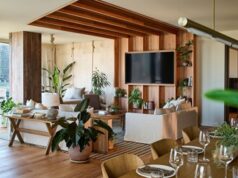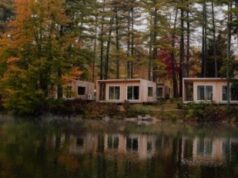
BOSTON—The 426-room Seaport Hotel, 100 percent nonsmoking since it opened in 1998, is marching toward Energy Star certification with a basket full of resource-saving programs. The initiatives include everything from guestroom energy management systems to public transportation incentives for employees. All of the Seaport Hotel’s environmental efforts are considered part of Seaport Saves.
Matt Moore, director of rooms at the property, said the Seaport got a wake-up call in 2005 when the Northeast Sustainable Energy Assn., an organization that planned to meet at the hotel, expressed disappointment in the Seaport’s green offerings.
“They suggested we do something about it or they would look for another venue,” Moore says.
At that point, a green committee was formed at the hotel and Moore became involved in Boston Green Tourism (BGT), a local organization consisting of hoteliers interested in greening their hotel operations. With the assistance of BGT, Moore and his team began to pursue Energy Star certification—a government program that enables a hotel to measure its progress, benchmark against others and eventually earn the Energy Star label.
“In two or three months we should be Energy Star certified,” Moore says. “There is a tremendous amount of value in gaining that.”
Guestroom Energy Management
One of the programs that is saving the Seaport Hotel $100,000 a year is a guestroom energy management system.
“We replaced the thermostats in each room,” Moore says. “The new unit has an occupancy sensor in it. When the door to the room is opened as a guest enters, a message is sent from the door magnet to the thermostat. This communication tells the computer chip in the sensor that someone has entered the room. The sensor then tells the heating and cooling system to take the room temperature to a predetermined comfort setting. Our system turns the heating or cooling system off after 14 minutes if no occupancy is detected.”
Also in the guestroom, guests are given the option of having their towels or bed linens washed. So far this year, the hotel has saved more than 288,000 gallons of water and not had to wash 108,000 pounds of laundry.
In partnership with Capital Paper, the Seaport Hotel recycles white paper, newspaper, plastic, glass, aluminum and cardboard. A recycling container is included in each guestroom to encourage guest participation and to further make evident the hotel’s concern for the environment. Housekeepers sort the recyclables in their carts before emptying them in other containers that are taken to the loading dock. According to the hotel, it has a recycle rate of 42 percent and is the only hotel in Boston with an in-room recycling program.
“We do spot checks to make sure housekeepers are recycling,” Moore says.
To further reduce waste production, all of the wood in guestrooms—desks, nightstands, accent tables and luggage benches—were refinished as opposed to being replaced. Seaport also donated mattresses to the Salvation Army and recycled more than 55 tons of carpet that was removed during a 2005-2006 renovation.
Other energy-saving measures include the use of compact fluorescent lighting (CFLs) in all guestrooms and public space fixtures.
“CFLs save a lot on labor,” Moore says. “We have seen a tremendous decrease in lightbulb calls.”
A capacitor bank is used to assist with the load shedding of electricity in the hotel. This “smart” meter and its associated sensors monitor multiple zones during peak energy usage periods in the hotel and reduce the electricity needed by 10 to 20 percent.
Thermo-glass windows in guestrooms and public spaces further conserve energy. The Seaport Hotel also encourages employees to ride public transportation and subsidizes 50 percent of commuting costs.
Up on the Roof
The Seaport Hotel and the adjacent Seaport World Trade Center are part of the same complex. All buildings on the trade center utilize a Sarnafil Energy Smart Roof system. This roof system is a sea of living sedum (a type of grass), designed to reduce atmospheric heat, conserve energy and preserve natural resources. Eleven percent of the complex’s campus is dedicated to park land and open space.
Go to the Seaport Hotel.
Glenn Hasek can be reached at greenlodgingnews@aol.com.







